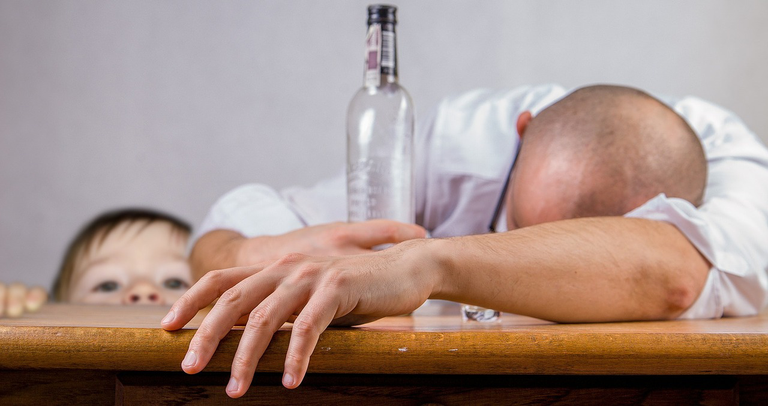The Journey of Substance Abuse: Connecting the Dots to Alcohol Addiction
Introduction
I am left in thoughts whenever I think about the stories hidden in the substance abuse. It's a journey through time, showing human experiences with mind-altering substances. According to history, substance abuse
all began with ancient rituals to modern struggles, so the history of substance abuse is a complex web of highs and lows, joys and sorrows.
One thread that stands out in this is alcohol abuse. It was symbol of celebration and connection before , now alcohol casting a dark shadow over many lives, trapping individuals in a cycle of dependency and despair.
In this article, I want to delve into the roots of alcohol abuse, we uncover the profound impact it has on our health, relationships, and society. And then, let us remember that what starts as a casual drink can quickly spiral into a struggle that affects not just individuals, but entire communities.
What is Alcohol Abuse

Whenever you felt that tug of war within yourself when it comes to alcohol, Iike someone standing on a thin line between enjoyment and excess. This is simply where alcohol abuse comes into play.
Alcohol abuse isn't just about drinking too much at a party or having a few extra rounds with friends. It goes deeper, seeping into daily life and impacting our physical and emotional well-being.
To put it simply, alcohol abuse is when drinking starts to take control over your life rather than you controlling it. It is when the glass of wine or beer becomes a crutch, a way to numb the pain or escape reality. This is a slippery slope, I must tell you that. And it can lead to a myriad of health, social, and personal issues.
So Imagine feeling the need to drink more and more just to feel "normal" or propane "Ok"or to cope with stress. Imagine how it will put you in your relationships, the missed opportunities, and the gradual erosion of your own sense of self.
That's the reality of alcohol abuse - a cycle of dependencee and regret that can seem impossible to break. It is not just about the quantity of alcohol consumed, but the impact it has on all aspects of life.
Factors that promote alcoholic abuse
There are many factors which can push one to abuse alcohol.

From genetic predispositions to environmental triggers, the reasons behind alcohol abuse are as diverse as the individuals affected by it. It's not just a matter of personal choice, but a convergence of biological, psychological, social, and cultural influences that shape our behaviors and attitudes towards alcohol.
Let's say you grow up in an environment where alcohol was a constant presence, where celebrations and sorrows alike were drowned in a sea of drinks. Imagine the impact of trauma, stress, or mental health issues that can drive individuals to seek solace in alcohol's temporary relief.
Factors like peer pressure, societal norms, and availability of alcohol can also play a significant role in pushing someone towards alcohol abuse. It is like a curiosity which is now turn into habit, and habit into dependency, blurring the boundaries between casual drinking and harmful consumption.
But knowing these factors will help us to addressing and preventing alcohol abuse. Recognizing the underlying influences and taking proactive steps to mitigate risks, we will have a healthier relationship with alcohol and foster a culture of responsible drinking.
Statistics on alcohol abuse globally
At this moment, let us consider the immense scale of alcohol abuse worldwide. Alcoholic abuse is a reality that extends far beyond borders, affecting individuals, families, and communities in every corner of the globe.
According to recent statistics, alcohol abuse is a significant public health concern, with an estimated 3 million deaths attributed to harmful alcohol use each year. This staggering number reflects the devastating toll that excessive drinking takes on lives, leaving a trail of brokenness and suffering in its wake.
In terms of prevalence, studies show that approximately 5.1% of the global burden of disease and injury is attributable to alcohol consumption. This means that alcohol-related harm is not only widespread but also a major contributor to overall health challenges faced by populations worldwide.
If we delve deeper into these numbers, we will find that alcohol abuse affects people of all ages and backgrounds. Including teenagers experimenting with binge drinking to adults grappling with alcohol dependency, the impact of excessive alcohol consumption knows no bounds.
Furthermore, the economic costs of alcohol abuse are immense, with estimates suggesting that alcohol-related harm accounts for a significant drain on healthcare systems, workplace productivity, and social welfare services globally. The financial burden of alcohol abuse extends beyond personal consequences to societal repercussions, underscoring the urgent need for comprehensive strategies to address this issue.
Vulnerable Populations Impacted by Alcohol Abuse
Alcohol abuse doesn't discriminate—it can affect individuals from all walks of life, but certain populations are more vulnerable to its harmful effects. Let's now look at how alcohol abuse impacts these three distinct groups: young adults and college students, working professionals, and the elderly population.
Young Adults and College Students
For many young adults and college students, alcohol is often intertwined with social activities and the quest for independence. Peer pressure, newfound freedom, and academic stress can create a breeding ground for excessive drinking and risky behaviors.
Studies show that a significant percentage of college students engage in binge drinking, putting their health and academic success at risk. From alcohol-related accidents to academic repercussions, the impact of alcohol abuse on young adults can be profound, shaping their future trajectories and well-being.Working Professionals
In our world today, alcohol can serve as a coping mechanism for stress, burnout, and work-related pressures. Long hours, demanding deadlines, and professional expectations can contribute to a culture where alcohol consumption becomes normalized as a way to unwind or socialize. However, what starts as an occasional drink to relax can escalate into a pattern of alcohol abuse that affects job performance, relationships, and overall health.

Recognizing the signs of alcohol abuse among working professionals is crucial in providing support and interventions to address underlying issues and promote well-being in the workplace.
Elderly Population
The elderly population is often overlooked when it comes to discussions about alcohol abuse, yet they too face unique challenges related to alcohol consumption. Factors such as loneliness, loss of social connections, and age-related health conditions can contribute to increased alcohol use among the elderly. Moreover, changes in metabolism and medication interactions can amplify the effects of alcohol in older adults, increasing the risk of falls, accidents, and health complications. It to consider the specific needs of the elderly population and provide tailored support and resources to address alcohol abuse in this vulnerable group.
we can take targeted actions to prevent harm, promote education, and provide support for those affected, By recognizing the vulnerabilities of these populations and understanding the factors that contribute to their alcohol abuse within each demographic.
Consequences of Ignoring Alcohol Abuse
Ignoring alcohol abuse can have devastating consequences that extend beyond physical health and well-being. Here are the behavioral, social, and legal repercussions of untreated alcohol abuse:
Relationship Issues:
Alcohol abuse can strain relationships with family members, friends, and romantic partners. Excessive drinking can lead to conflicts, misunderstandings, and breakdowns in communication. The impact of alcohol abuse on relationships may include the following:
- Deterioration of trust and intimacy
- Increased arguments and conflict
- Emotional distancing and isolation
- Neglect of responsibilities and obligations
- Domestic violence or abuse
- Parenting challenges and family instability
Untreated alcohol abuse can erode the foundation of healthy relationships, leading to loneliness, resentment, and alienation from loved ones.
Legal Repercussions:
Alcohol abuse often leads to risky behaviors such as drunk driving, public intoxication, or engaging in illegal activities while under the influence. Ignoring alcohol abuse can result in serious legal consequences, including:
- DUI (Driving Under the Influence) arrests and convictions
- Legal fines, fees, and court-mandated programs
- License suspension or revocation
- Criminal charges and imprisonment
- Civil lawsuits for damages or injuries caused while intoxicated
Legal repercussions from alcohol abuse can have long-lasting effects on one's record, employment opportunities, and personal freedom.
Mental Health Implications:
Untreated alcohol abuse is closely linked to mental health issues, exacerbating symptoms of anxiety, depression, and other psychological disorders. The mental health implications of ignoring alcohol abuse may include:
- Increased risk of developing mood disorders and anxiety
- Impaired cognitive function and memory loss
- Worsening of pre-existing mental health conditions
- Heightened risk of suicidal ideation or self-harm
- Social withdrawal and isolation
- Elevated levels of stress, guilt, and shame
Alcohol abuse can mask underlying mental health issues or contribute to the development of new co-occurring disorders, creating a cycle of self-destructive behaviors and emotional distress.
To put things together, you can observe from above that ignoring alcohol abuse can lead to a cascade of negative consequences that impact various aspects of an individual's life.
Treatment and Recovery Options for Alcohol Abuse
Recovery from alcohol abuse is a journey that requires courage, support, and a commitment to change. Fortunately, there are a variety of treatment options available to help individuals break free from the grip of alcohol addiction and reclaim their lives. Let us discuss some key pathways to recovery:
Detoxification (Detox): The first step in conquering alcohol addiction often involves detoxification, where the body rids itself of alcohol toxins. Medically supervised detox programs provide support and monitoring to ensure a safe and comfortable withdrawal process, managing any potential withdrawal symptoms that may arise.
Inpatient Rehabilitation: For individuals requiring intensive support and structure, inpatient rehabilitation programs offer a residential treatment setting where individuals can focus on their recovery full-time. These programs provide therapy, counseling, medical support, and a supportive community environment to help individuals build the skills and resilience needed to overcome alcohol addiction.
Outpatient Programs: Outpatient programs offer flexibility for individuals who do not require round-the-clock care but still benefit from structured treatment. These programs typically involve counseling, therapy sessions, group support meetings, and educational workshops to address the underlying issues contributing to alcohol abuse and provide ongoing support in the recovery process.
Counseling and Therapy: Individual counseling and therapy play a role in addressing the psychological, emotional, and behavioral aspects of alcohol addiction. Cognitive-behavioral therapy (CBT), motivational interviewing, and other evidence-based therapies help individuals understand their triggers, develop coping strategies, and build resilience to prevent relapse.
Medication-Assisted Treatment: In some cases, medication may be prescribed to help manage cravings, withdrawal symptoms, or co-occurring mental health disorders that contribute to alcohol abuse. Medication-assisted treatment can complement other forms of therapy and support to enhance the effectiveness of treatment.
Holistic Approaches: Holistic approaches to recovery encompass various complementary therapies such as mindfulness practices, yoga, art therapy, and meditation to promote overall well-being and address the mind-body-spirit connection. These holistic interventions can enhance emotional resilience, reduce stress, and support long-term recovery.
Aftercare Planning: Transitioning back to daily life after completing a formal treatment program can be challenging. Aftercare planning involves developing a personalized plan that outlines strategies for maintaining sobriety, accessing ongoing support services, and building a network of recovery resources to sustain long-term recovery.
Exploring and combining these treatment options based on individual needs and preferences, individuals struggling with alcohol abuse can embark on a path towards healing, growth, and sobriety. With the right support, guidance, and a commitment to change, recovery from alcohol addiction is possible, opening the door to a brighter and healthier future.
References
(1) Diagnostics | Free Full-Text | A Comprehensive Review on Alcohol Abuse .... https://www.mdpi.com/2075-4418/14/11/1189.
(2) Daily Alcohol Intake and Risk of All-Cause Mortality. https://jamanetwork.com/journals/jamanetworkopen/fullarticle/2802963.
(3) National Institute on Alcohol Abuse and Alcoholism (NIAAA). https://www.niaaa.nih.gov/research/niaaa-research-highlights/meta-analysis-supports-aa-treatment-aud.
(4) Screening and Assessment Tools Chart | SAMHSA. https://www.samhsa.gov/resource/dbhis/screening-assessment-tools-chart.
(5) https://www.who.int/publications/i/item/9789241565639
(6)https://www.thelancet.com/journals/lancet/article/PIIS0140-6736(09)60746-7/abstract?rss%3Dyes=



Dear @jsalvage !
My dear young bro James!
How do you do?
Long time no see!
Your article is good!
By the way, I can't drink alcohol at all! 😄
I miss EzEEmmanuel!😃
Hey friend, I'm fine. What about you?
Well, I have reached the most tasking level in my academics so i won't be readily active here for sometimes.
Emmanuel is good. He has been planning on how to return Back to hive. Although things has not been easy coupled with his school activities. But don't worry 😄
James!
I saw the news that the current situation in Nigeria is not good. Good luck to you and Emmanuel!
Daalu!
Yes, the situation of the country now is not encouraging at all but again, we are not giving up. There must be changes very soon
This is one of the problems that brings many social problems in the world! Chemical substance abuses in general is very bad for our body that brings addiction!
You are right, friend. I have witnessed may outrageous actions which lead to fetal results and they were all evoked by the influence of chemical abuse. Not only alcohol.
Thanks for your contribution to the STEMsocial community. Feel free to join us on discord to get to know the rest of us!
Please consider delegating to the @stemsocial account (85% of the curation rewards are returned).
You may also include @stemsocial as a beneficiary of the rewards of this post to get a stronger support.
What an interesting and well detailed post, I know well this addiction most of my family had alcohol issues. Such an insidious addiction.
Alcoholic drinks can be your enemy when you don't handle it with care. It has dealt with many victims due to how much they abused it. Sorry to hear that most of your family had such issues. I believe therapy can be if great help to them !